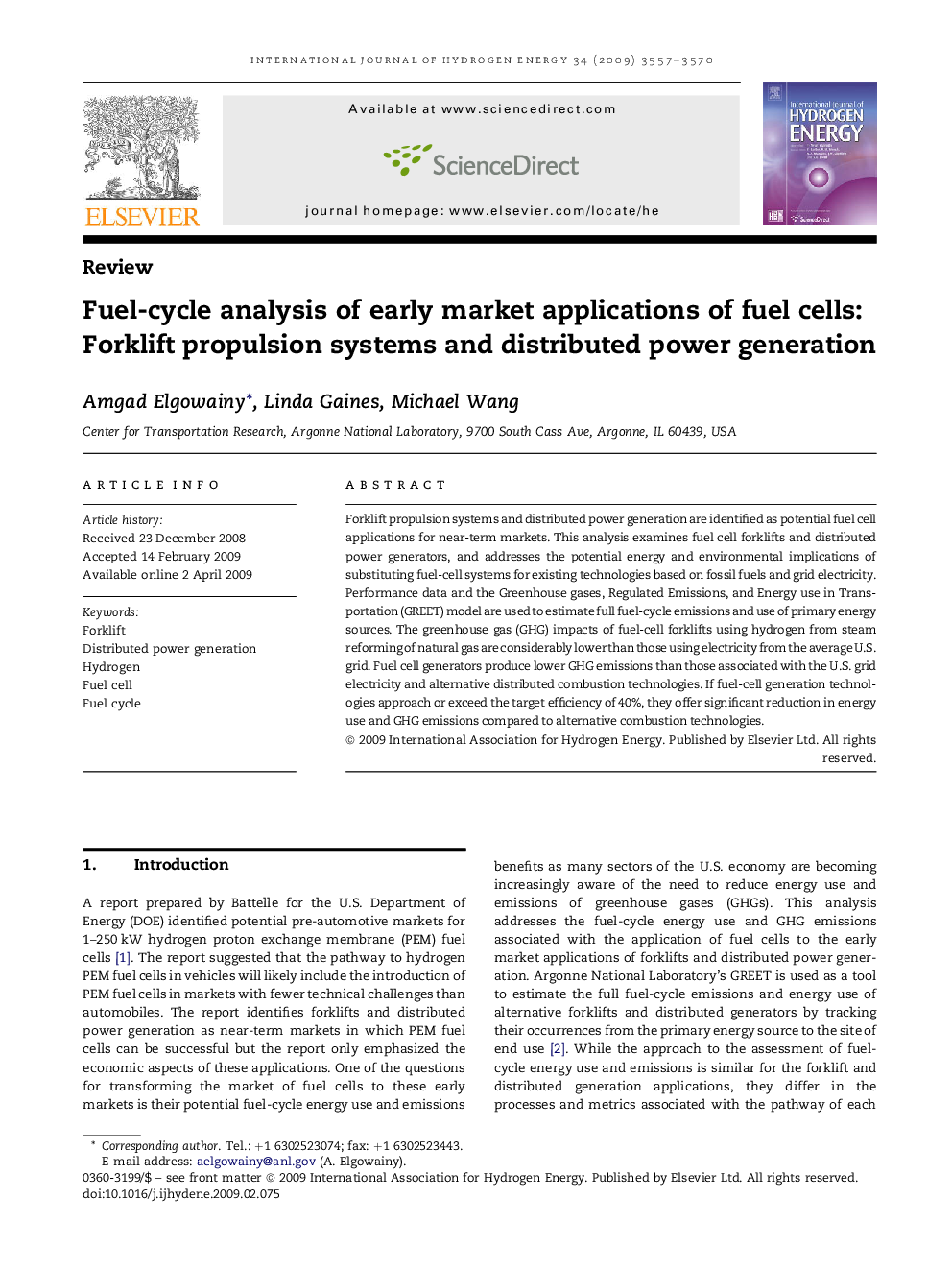| Article ID | Journal | Published Year | Pages | File Type |
|---|---|---|---|---|
| 1278985 | International Journal of Hydrogen Energy | 2009 | 14 Pages |
Forklift propulsion systems and distributed power generation are identified as potential fuel cell applications for near-term markets. This analysis examines fuel cell forklifts and distributed power generators, and addresses the potential energy and environmental implications of substituting fuel-cell systems for existing technologies based on fossil fuels and grid electricity. Performance data and the Greenhouse gases, Regulated Emissions, and Energy use in Transportation (GREET) model are used to estimate full fuel-cycle emissions and use of primary energy sources. The greenhouse gas (GHG) impacts of fuel-cell forklifts using hydrogen from steam reforming of natural gas are considerably lower than those using electricity from the average U.S. grid. Fuel cell generators produce lower GHG emissions than those associated with the U.S. grid electricity and alternative distributed combustion technologies. If fuel-cell generation technologies approach or exceed the target efficiency of 40%, they offer significant reduction in energy use and GHG emissions compared to alternative combustion technologies.
